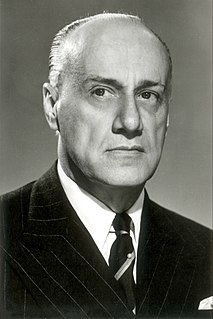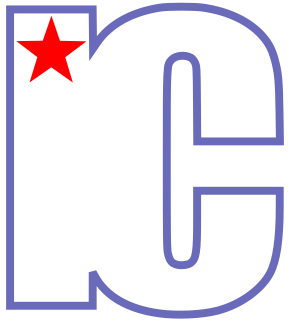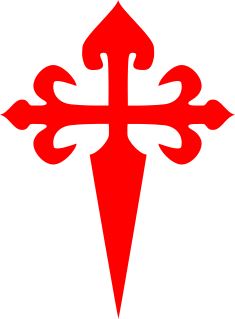Radical Party Partido Radical | |
|---|---|
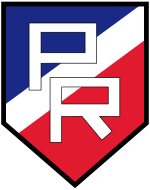 | |
| Leader (s) | Manuel Antonio Matta, Ramón Allende Padín, Enrique Mac Iver, Juan Esteban Montero, Pedro Aguirre Cerda, Juan Antonio Ríos, Gabriel González Videla, Anselmo Sule |
| Founded | December 27, 1863 |
| Dissolved | August 18, 1994 |
| Split from | Liberal Party |
| Merged into | Social Democrat Radical Party |
| Headquarters | Santiago de Chile |
| Youth wing | Juventud Radical de Chile |
| Ideology | Radicalism (Chile) Anti-clericalism Social liberalism Socialism Social democracy |
| Political position | Centre to Centre-left |
| National affiliation | Liberal Alliance (1891–1925) Popular Front (1937–41) Democratic Alliance (1942–47) Democratic Front (1962–64) Popular Unity (1969–73) Concertación (1988–94) |
| International affiliation | Socialist International (1981–94) |
| Colours | Blue, white, red |
The Radical Party (Spanish: Partido Radical) of Chile was a Chilean political party. It was formed in 1863 in Copiapó by a split in the Liberal Party. [1] Not coincidentally, it was formed shortly after the organization of the Grand Lodge of Chile, and it has maintained a close relationship with Chilean Freemasonry throughout its life. As such, it represented the anticlericalist position in Chilean politics, and was instrumental in producing the "theological reforms" in Chilean law in the early 1880s. These laws removed the cemeteries from the control of the Roman Catholic Church, established a civil registry of births and death in place of the previous recordkeeping of the church, and established a civil law of matrimony, which removed the determination of validity of marriages from the church. Prior to these laws, it was impossible for non-Catholics to contract marriage in Chile, and meant that any children they produced were illegitimate. Non-Catholics had also been barred from burial in Catholic cemeteries, which were virtually the only cemeteries in the country; instead, non-Catholics were buried in the beaches, and even on the Santa Lucia Hill in Santiago, which, in the 19th century, functioned as Santiago's dump.

Chile, officially the Republic of Chile, is a South American country occupying a long, narrow strip of land between the Andes to the east and the Pacific Ocean to the west. It borders Peru to the north, Bolivia to the northeast, Argentina to the east, and the Drake Passage in the far south. Chilean territory includes the Pacific islands of Juan Fernández, Salas y Gómez, Desventuradas, and Easter Island in Oceania. Chile also claims about 1,250,000 square kilometres (480,000 sq mi) of Antarctica, although all claims are suspended under the Antarctic Treaty.

Copiapó is a city in northern Chile, located about 65 kilometers east of the coastal town of Caldera. Founded on December 8, 1744, it is the capital of Copiapó Province and Atacama Region.

The Grand Lodge of Chile is a regular Masonic body in Chile founded in 1863.
Contents
In the 20th century, the radicals adopted a moderately center-left stance, taking part to Pedro Aguirre Cerda's Popular Front and then to the Democratic Alliance left-wings coalition which succeeded to Cerda's death.

Pedro Aguirre Cerda was a Chilean political figure. A member of the Radical Party, he was chosen as the Popular Front's candidate for the 1938 presidential election, and was triumphally elected. He governed Chile until his death in 1941. Pedro Aguirre Cerda was of Basque descent.
The Popular Front in Chile was an electoral and political left-wing coalition from 1937 to February 1941, during the Presidential Republic Era (1924–1973). It gathered together the Radical Party, the Socialist Party, the Communist Party, the Democratic Party and the Radical Socialist Party, as well as organizations such as the Confederación de Trabajadores de Chile (CTCH) trade-union, the Mapuche movement which unified itself in the Frente Único Araucano, and the feminist Movimiento Pro-Emancipación de las Mujeres de Chile (MEMCh).
During the presidency of Gabriel Gonzalez Videla (1946–1952) it shifted to the right, and many of its members were anti-Communists. In 1950s, the party started to lose ground. At the end of the 1960s, left-wingers gained upper hand in the Radical party, causing some of the more right-wing leaders to leave the party. The anticommunist Radicals formed the Radical Democracy. In the crucial 1970 election, which resulted in the presidency of Salvador Allende, they formed an alliance with the right-wing National Party and, later, supported Pinochet's 1973 coup. In contrast, the Radical Party was part of the Unidad Popular coalition supporting Salvador Allende who became president in 1970. Radicals, supporting gradual reforms, were generally loyal to the leftist governing coalition.
The Radical Democracy, was a Chilean centre-right political party. The party, created in 1969, was dissolved in 1973, and reappeared in 1983 before disbanding permanently in 1990.

Augusto José Ramón Pinochet Ugarte was a Chilean general, politician and dictator of Chile between 1973 and 1990 who remained the Commander-in-Chief of the Chilean Army until 1998 and was also President of the Government Junta of Chile between 1973 and 1981.

The Popular Unity was a left-wing political alliance in Chile that stood behind the successful candidacy of Salvador Allende for the 1970 Chilean presidential election.
In its XXV Congress that took place from 31 July to 5 August 1971, the Radical Party confirmed the left-wing line it had taken already in 1967. The congress declared that the Radicals discard bourgeois democracy as an instrument of capitalist domination and the Radical Party is now a socialist party, that subscribes to class struggle and historical materialism. On 3 August, Senators Bossay, Baltra, Acuña, Juliet and Aguirre and deputies Ibáñez, Magalahes, Naudón, Basso, Clavel, Sharpe and Muñoz Barra left the Radical Party. They founded a new party of radicals with more moderate views, paradoxically called Partido de Izquierda Radical – Party of Radical Left. [2] The new party initially remained part of the Unidad Popular. On the other hand, a moderate Social Democrat Party, up to then an independent party within the Unidad Popular bloc, merged with the Radical Party. During that time, the Radical Party of Chile declared their organization to be socialist and they officially adhered to the doctrines of historical materialism and class struggle. [3] Like other parties, it was banned after the 11 September 1973 coup.

Historical materialism is a methodology used by some communist and Marxist historiographers that focuses on human societies and their development through history, arguing that history is the result of material conditions rather than ideas. This was first articulated by Karl Marx (1818–1883) as the "materialist conception of history." It is principally a theory of history which asserts that the material conditions of a society's mode of production or in Marxist terms, the union of a society's productive forces and relations of production, fundamentally determine society's organization and development. Historical materialism is an example of Marx and Engel's scientific socialism, attempting to show that socialism and communism are scientific necessities rather than philosophical ideals.
In 1983 the Radical Party was one of the creators along with the Christian Democrat, Liberal, Social Democrat parties and the renewed sector of the Socialist Party of Chile, of the Democratic Alliance coalition opposing the Pinochet regime. Another area of radicalism, led by Luis Fernando Luengo, came to the United Left and founded the Democratic Socialist Radical Party (PRSD). Both parties supported the option NO in the plebiscite of 1988 and proclaimed Patricio Aylwin as their presidential candidate, but in the parliamentary elections of 1989 were presented in different lists; the PR was part of the coalition, while the PRSD participated in the list Unity for the Democracy with Broad Party of Socialist Left.

The Christian Democratic Party is a Christian democratic political party in Chile and governs as part of the Nueva Mayoría coalition.
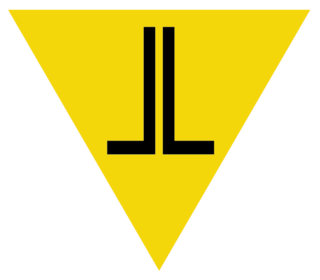
The Liberal Party was a Chilean centrist political party existing between 1988 and 1994.
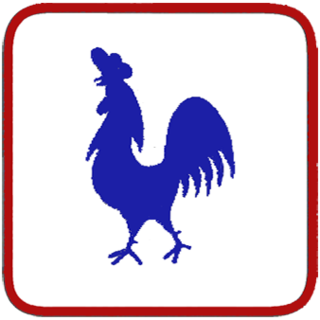
The Chilean Social Democracy Party (Spanish: Partido Socialdemocracia Chilena, until August 1973 Radical Left Party was a Chilean political party of centre-left orientation, formed by dissident Radicals in 1971.
After the return to democracy, the Radical Party reformed as a center-left group, and joined the Concertación de Partidos por la Democracia, a coalition of parties which also included the Christian Democrats and the Socialists.
Its electoral strength was greatly reduced from that which it had enjoyed between 1880 and 1950. In 1994 joined with the Social Democracy Party to form the Social Democrat Radical Party, and does hold offices in the Senate and the Chamber of Deputies, as well as in some municipal governments.

The Social Democrat Radical Party is a social democratic political party in Chile.




